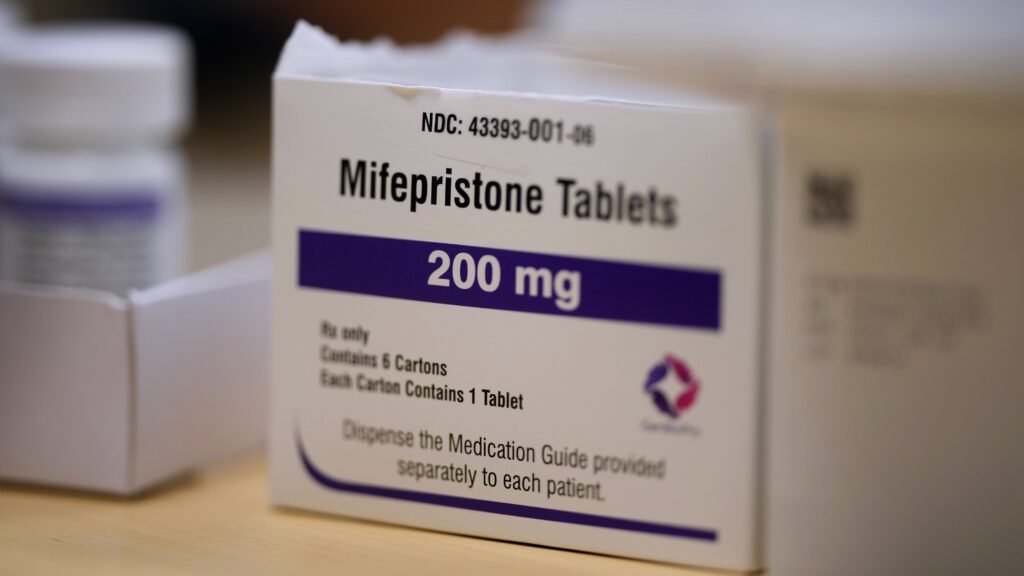For decades, the Food and Drug Administration has partnered with clinicians and industry to deliver evidence-based medical innovations using a gold-standard framework for drug development and oversight. The agency has the authority to review any approved drug, and such reviews are a vital part of ensuring public health. That process has long been grounded in transparent and methodologically sound science.
Now that approach is under threat. In April, the Ethics and Public Policy Center (EPPC), a conservative think tank, released a deeply flawed, politically driven report with the inflammatory title “The Abortion Pill Harms Women.” It’s being used to challenge the FDA’s long-standing approval of mifepristone, one of the FDA’s most studied medications. It’s been safely used by millions for more than two decades, with over 25 years of data confirming its safety and efficacy.
The report has already begun to shape policy, political strategy, and public discourse. The day the report was released, Sen. Josh Hawley cited it in a letter urging the FDA commissioner to tighten restrictions on mifepristone and said he plans to introduce legislation to that effect. HHS Secretary Robert F. Kennedy Jr. used the report to justify a formal FDA review of its approval. And anti-abortion groups like Americans United for Life launched a coordinated campaign called “Rolling Thunder” focused on the report’s so-called findings to pressure the FDA, sue shield-law protected providers, and push Congress to act.
Alongside more than 50 biotech leaders and investors representing dozens of companies, I’ve urged the FDA to disregard this methodologically flawed policy paper. As Ushma D. Upadhyay, professor at the University of California, San Francisco, wrote in her comment to the FDA, the EPPC report fundamentally misrepresents what constitutes a medical complication. It conflates emergency room visits with serious adverse events — contrary to FDA guidance — and counts routine follow-up procedures as complications, even though 3-5% of patients typically need such care.
The report further inflates risk by including patients treated for miscarriage in abortion statistics, listing ectopic pregnancies as complications of medication abortion (which they are not), and categorizing cardiac or pulmonary events as abortion-related without clear causal links. Given these distortions, it’s no surprise that the report claims an adverse event rate of nearly 11% — wildly out of step with the 0.05% rate consistently found in clinical studies.
The biotech industry has long depended on the FDA’s adherence to scientific data in its decision-making. As someone with over 25 years of experience leading companies and organizations working in biopharma, genomics, diagnostics, and industrial biotechnology, and as a former venture capital investor, I know how much biomedical progress depends on a regulatory system rooted in science and consistency.
Innovation flourishes when entrepreneurs, investors, and scientists can trust the process. That trust will erode if drug policy is influenced by cherry-picked or distorted data. Who will invest in genuine biomedical research if the scientific guardrails are abandoned?
Prioritizing a junk study with a clear agenda over decades of peer-reviewed research would send shockwaves through the biotechnology community and deter investment in medical research. American biomedical innovation depends on rejecting unsound research in regulatory decision-making. Weakening the agency’s authority by succumbing to politicized pressure not only undermines confidence in the FDA, but also jeopardizes investment, research, and ultimately, patient care.
Mifepristone is a case in point. The FDA first approved the medication in 2000 and has reviewed it multiple times since, including in 2016 and again in 2023. Its safety profile is among the most well-documented in medicine: More than 100 peer-reviewed studies confirm its efficacy and safety. Leading medical bodies — including the American College of Obstetricians and Gynecologists, the Society for Family Planning, and the National Academies of Sciences, Engineering, and Medicine — have affirmed its use.
Unlike credible medical studies, the EPPC report is neither peer-reviewed nor transparent. It underwent only internal review by an undisclosed panel rather than formal external peer review and was authored not by medical experts, but by the think tank’s president and director of data analysis. As Upadhyay also noted, the report fails to define key terms like “hemorrhage” and refuses to disclose its data sources, citing confidentiality. No investor or drug developer would tolerate this level of sloppiness in their work — nor should any credible regulator.
And yet, this report is already shaping headlines, legislation, and legal threats, amplified by increasingly incendiary rhetoric. One recent op-ed in The Hill even labeled the FDA and pharmaceutical companies an “abortion pill cartel.” This kind of hyperbole has no place in a serious scientific or regulatory debate, and it underscores just how politically distorted the conversation has become.
This moment is about more than one flawed report. It could risk setting a precedent such that any therapy — particularly one deemed politically sensitive — can be derailed by targeted misinformation from nefarious actors. That would chill innovation across the board, discourage the development of potentially lifesaving treatments, and harm patients who rely on our ability to turn cutting-edge research into accessible therapies.
It would also weaken U.S. leadership in the global biotech landscape. Biotechnology is a cornerstone of national competitiveness, biosecurity, and economic growth. The U.S. bioeconomy supports more than 430,000 jobs and holds enormous potential for expanding access to new treatments, improving public health, and addressing global challenges. At a time of intense global competition — especially with China — and amid a challenging investment environment, the U.S. cannot afford to undermine its scientific and regulatory credibility. Other countries are doubling down on efforts to translate research into cures, while we risk sidelining real science and crippling innovation. A strong, science-driven biotechnology agenda is not just about health. It’s about national security and economic imperative.
We’re at a moment of both urgency and opportunity. I’m highly encouraged by new FDA Commissioner Martin Makary’s focus on modernization (including speeding up reviews, reducing time to clinic, and integrating AI to streamline documentation, among others), as well as by his proactive outreach and collaboration with stakeholders. His actions have the potential to make the regulatory process more efficient while preserving its rigor.
Similarly, NIH Director Jay Bhattacharya’s actions to prioritize greater transparency, including ensuring all NIH-funded research is available through open-access publication, will facilitate the more rapid sharing of important scientific advancements that are the foundation of downstream development.
These are the kinds of forward-looking reforms that strengthen public trust and accelerate scientific progress. These actions must be matched with an unwavering commitment to evidence-based policy. That includes the industry fully supporting and defending the FDA’s independence and its decision-making based solely on credible science.
We can and should debate how to make our health systems stronger, more responsive, and more affordable. But that debate must be grounded in facts, not fear, and in data, not ideology. The FDA must remain a fortress of scientific integrity. The health and well-being of millions of patients depend on it, as does the strength of America’s biotechnology sector.
Grace E. Colón, Ph.D., is the former president and CEO of InCarda Therapeutics, is a former venture capital partner, and currently serves on the boards of several public and private biotechnology companies, as well as on the board of the MIT Corporation.












Leave feedback about this